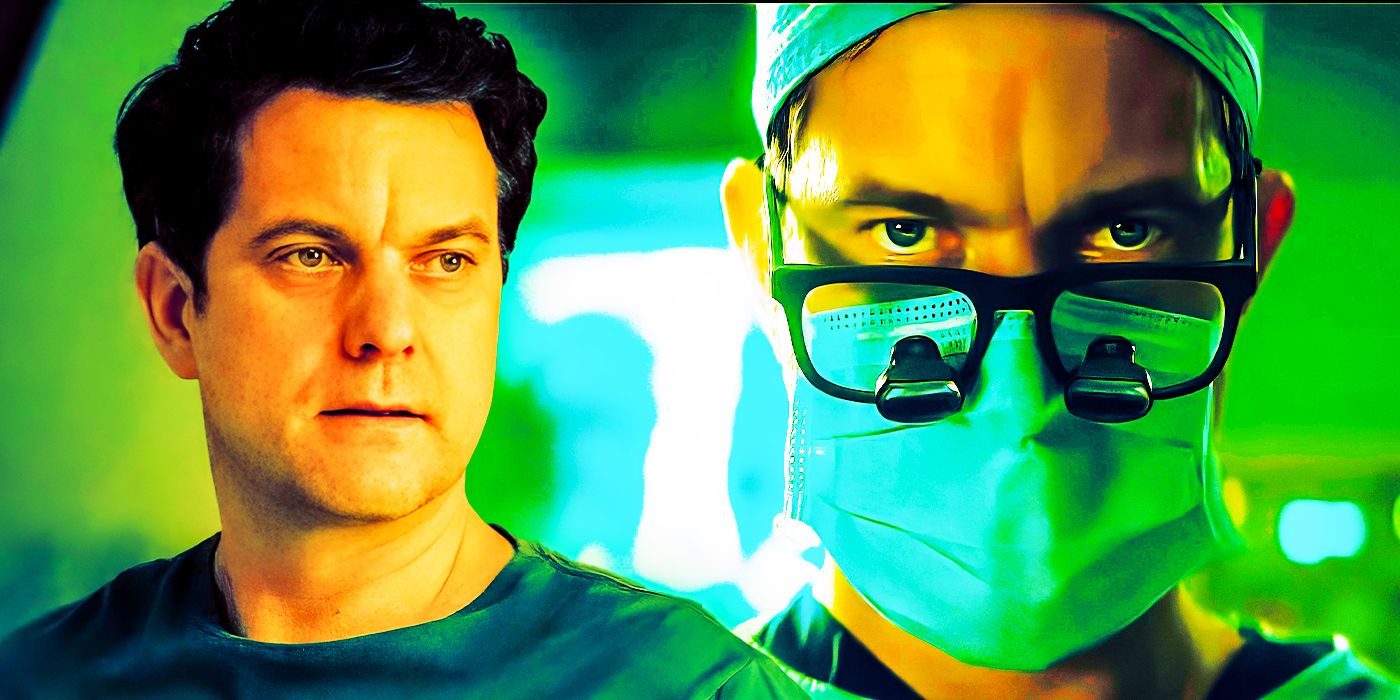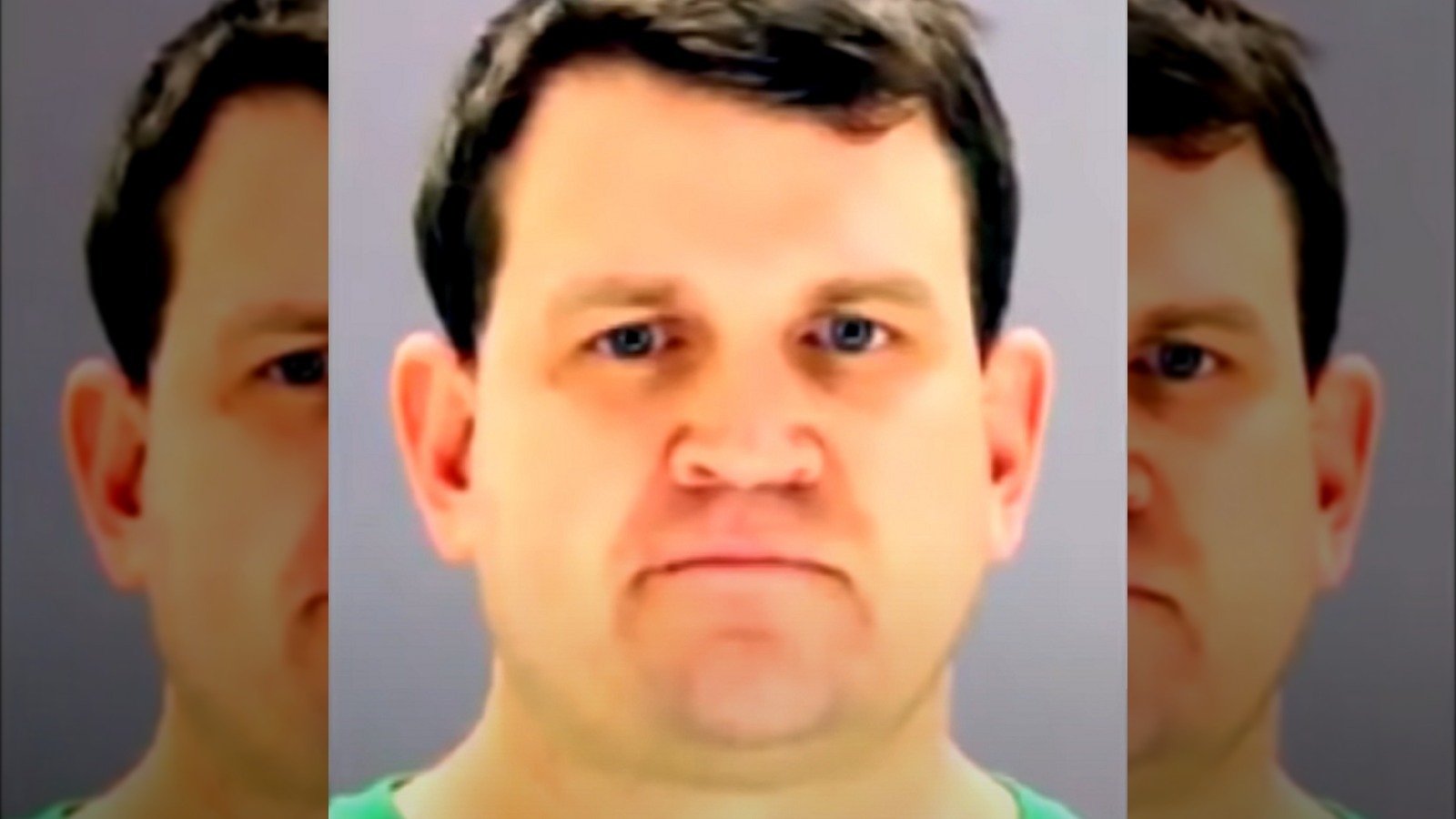There’s been a lot of buzz around the case of Dr. Duntsch, and if you’re diving into this story, chances are you’re curious about his email and what it means in the grand scheme of things. This isn’t just another medical drama; it’s a deep dive into the world of neurosurgery, ethics, and the consequences of human error. Buckle up, because we’re about to unravel the mystery behind Dr. Duntsch email and why it’s making waves in the medical community.
You might be wondering, “What’s so special about Dr. Duntsch’s email?” Well, it’s not just an ordinary email—it’s tied to one of the most controversial cases in modern medicine. As we delve deeper, you’ll see how this seemingly small detail plays a big role in understanding the larger narrative of Dr. Christopher Duntsch and his controversial career.
This article isn’t just about facts and figures. It’s about exploring the human side of medicine, the mistakes that can happen, and the impact they have on patients and their families. So, let’s get started, shall we? Grab a cup of coffee, and let’s uncover the truth behind Dr. Duntsch email.
Read also:Brianna Williams Daughter The Rising Star In The Spotlight
Who Is Dr. Christopher Duntsch?
Before we dive into the specifics of Dr. Duntsch email, let’s take a moment to understand who this man is. Dr. Christopher Duntsch was once hailed as a rising star in the field of neurosurgery. With a promising career ahead, he quickly became known for his innovative techniques and dedication to his craft. But as the saying goes, “With great power comes great responsibility,” and in Duntsch’s case, things took a dark turn.
Dr. Duntsch’s career began with promise, but it ended in scandal. He was accused of botching surgeries, leaving patients with life-altering injuries. The details are chilling, and the fallout from his actions has left a lasting impact on the medical community. But how did it all start? What led to this downfall, and what role did his email play in the unraveling of his career?
Biography of Dr. Duntsch
Let’s break it down. Dr. Christopher Duntsch was born on July 17, 1971, in Canada. He studied medicine at the University of Manitoba and later specialized in neurosurgery. His career took off when he moved to Texas, where he worked at several hospitals, including the Medical Center of Plano. At first, he was seen as a talented surgeon with a bright future. But as time went on, cracks began to show.
Below is a quick overview of his personal and professional life:
| Full Name | Christopher Paul Duntsch |
|---|---|
| Date of Birth | July 17, 1971 |
| Place of Birth | Canada |
| Education | University of Manitoba |
| Specialization | Neurosurgery |
| Notable Incident | Botched surgeries leading to multiple lawsuits |
Dr. Duntsch Email: The Smoking Gun
Now, let’s talk about the elephant in the room—Dr. Duntsch email. What exactly was in those emails, and why are they so significant? In the world of legal battles and medical malpractice, emails often serve as crucial evidence. They can reveal intentions, actions, and even cover-ups. In Duntsch’s case, his emails became a focal point in the investigation into his practices.
According to reports, Dr. Duntsch’s email exchanges with colleagues and hospital administrators painted a picture of arrogance and disregard for patient safety. Some emails allegedly showed him dismissing concerns about his surgical techniques, while others hinted at a lack of remorse for the harm he caused. These emails became a key piece of evidence in the lawsuits filed against him.
Read also:Jessica Dupart The Rising Star In The World Of Entertainment
What Did the Emails Reveal?
- Arrogant attitude towards colleagues and patients
- Disregard for hospital protocols and safety measures
- Defensive responses to criticism about his surgical methods
- Attempts to shift blame onto others for surgical failures
It’s not just about the content of the emails; it’s about the bigger picture they paint. They reveal a pattern of behavior that ultimately led to his downfall. And in the world of medicine, where trust is paramount, such behavior is simply unacceptable.
The Impact of Dr. Duntsch Email on His Career
Dr. Duntsch email didn’t just tarnish his reputation; it shattered it. Once a respected neurosurgeon, he is now remembered as one of the most notorious figures in modern medicine. The emails played a pivotal role in the legal proceedings against him, leading to multiple lawsuits and, eventually, a criminal conviction.
In 2018, Dr. Duntsch was sentenced to life in prison for aggravated assault with a deadly weapon. The “deadly weapon” in this case? His surgical tools. The emails were used as evidence to show his reckless disregard for patient safety and his refusal to acknowledge his mistakes. It’s a chilling reminder of how one’s actions—and words—can have lasting consequences.
How Emails Shape Public Perception
In today’s digital age, emails are more than just a means of communication; they’re a reflection of character. For Dr. Duntsch, his emails painted a picture of a man who was more concerned with his ego than with his patients’ well-being. This perception was further solidified by the media coverage of his case, which often highlighted the damning nature of his email exchanges.
So, what can we learn from this? In any profession, especially one as sensitive as medicine, communication matters. Whether it’s through emails, conversations, or actions, the way we interact with others can shape how we’re perceived. And in Duntsch’s case, his emails ultimately sealed his fate.
The Bigger Picture: Lessons from Dr. Duntsch Email
Dr. Duntsch email isn’t just about one man’s downfall; it’s a cautionary tale for the entire medical community. It highlights the importance of accountability, transparency, and ethical behavior in the practice of medicine. In an era where medical malpractice is a growing concern, cases like Duntsch’s serve as a wake-up call for healthcare professionals everywhere.
Here are some key takeaways from the Dr. Duntsch email saga:
- Accountability matters in every profession
- Transparency is crucial, especially in high-stakes environments
- Ethical behavior should always come before personal gain
- Communication, both verbal and written, can have long-lasting impacts
These lessons aren’t just for doctors; they apply to anyone in a position of authority. Whether you’re a surgeon, a lawyer, or a teacher, the way you communicate and conduct yourself can have far-reaching consequences.
Dr. Duntsch Email and the Role of Technology
Technology has transformed the way we communicate, and in many ways, it’s a double-edged sword. While it makes communication faster and more efficient, it also leaves a digital trail that can be difficult to erase. In Duntsch’s case, his emails became a permanent record of his actions and decisions.
This raises an important question: How should professionals use technology in their work? Should there be stricter guidelines for email communication in sensitive fields like medicine? These are questions that need to be addressed as we move forward in an increasingly digital world.
Best Practices for Professional Communication
Here are some tips for maintaining professionalism in your email communication:
- Always double-check your tone before hitting send
- Be mindful of what you write, as it could be used against you
- Follow company protocols and guidelines for email usage
- Document important decisions and actions in writing
By adopting these practices, professionals can avoid the pitfalls that led to Duntsch’s downfall.
Dr. Duntsch Email: A Case Study in Medical Ethics
At its core, the Dr. Duntsch email case is a study in medical ethics. It raises important questions about the responsibilities of healthcare providers and the trust that patients place in them. When that trust is broken, the consequences can be devastating, as we’ve seen in Duntsch’s case.
Medical ethics is a complex field, and it’s one that requires constant vigilance. Professionals must be aware of the ethical implications of their actions and take steps to ensure they’re acting in the best interests of their patients. This includes maintaining open lines of communication, being transparent about mistakes, and holding themselves accountable for their actions.
How Can We Promote Ethical Behavior in Medicine?
Here are some ways to foster a culture of ethics in the medical field:
- Implement mandatory ethics training for all healthcare professionals
- Encourage open discussions about ethical dilemmas and challenges
- Create systems for reporting unethical behavior without fear of retaliation
- Hold individuals accountable for their actions through transparent processes
By prioritizing ethics, the medical community can work towards a future where cases like Duntsch’s are a thing of the past.
Dr. Duntsch Email: A Call to Action
As we wrap up this article, it’s important to reflect on what we’ve learned from the Dr. Duntsch email case. It’s a story that serves as both a warning and an opportunity for growth. For healthcare professionals, it’s a reminder of the importance of accountability, transparency, and ethical behavior. For patients, it’s a call to action to advocate for their own care and to demand the highest standards from their providers.
So, what can you do? If you’re a healthcare professional, take a moment to evaluate your own practices and communication. Are you acting in the best interests of your patients? Are you transparent in your decisions? If you’re a patient, don’t be afraid to ask questions and seek second opinions. Your health is too important to leave to chance.
Final Thoughts: The Legacy of Dr. Duntsch Email
In conclusion, the Dr. Duntsch email case is more than just a scandal; it’s a lesson in the power of communication and the importance of ethics in medicine. While Duntsch’s story is a dark one, it also serves as a catalyst for change. By learning from his mistakes, we can work towards a future where trust and accountability are the cornerstones of healthcare.
So, what’s next? Take a moment to reflect on what you’ve learned and consider how you can apply these lessons in your own life. And if you found this article helpful, don’t forget to share it with others. Together, we can make a difference in the world of medicine.
Table of Contents
Who Is Dr. Christopher Duntsch?
Dr. Duntsch Email: The Smoking Gun
The Impact of Dr. Duntsch Email on His Career
How Emails Shape Public Perception
The Bigger Picture: Lessons from Dr. Duntsch Email
Dr. Duntsch Email and the Role of Technology
Best Practices for Professional Communication
Dr. Duntsch Email: A Case Study in Medical Ethics
How Can We Promote Ethical Behavior in Medicine?


